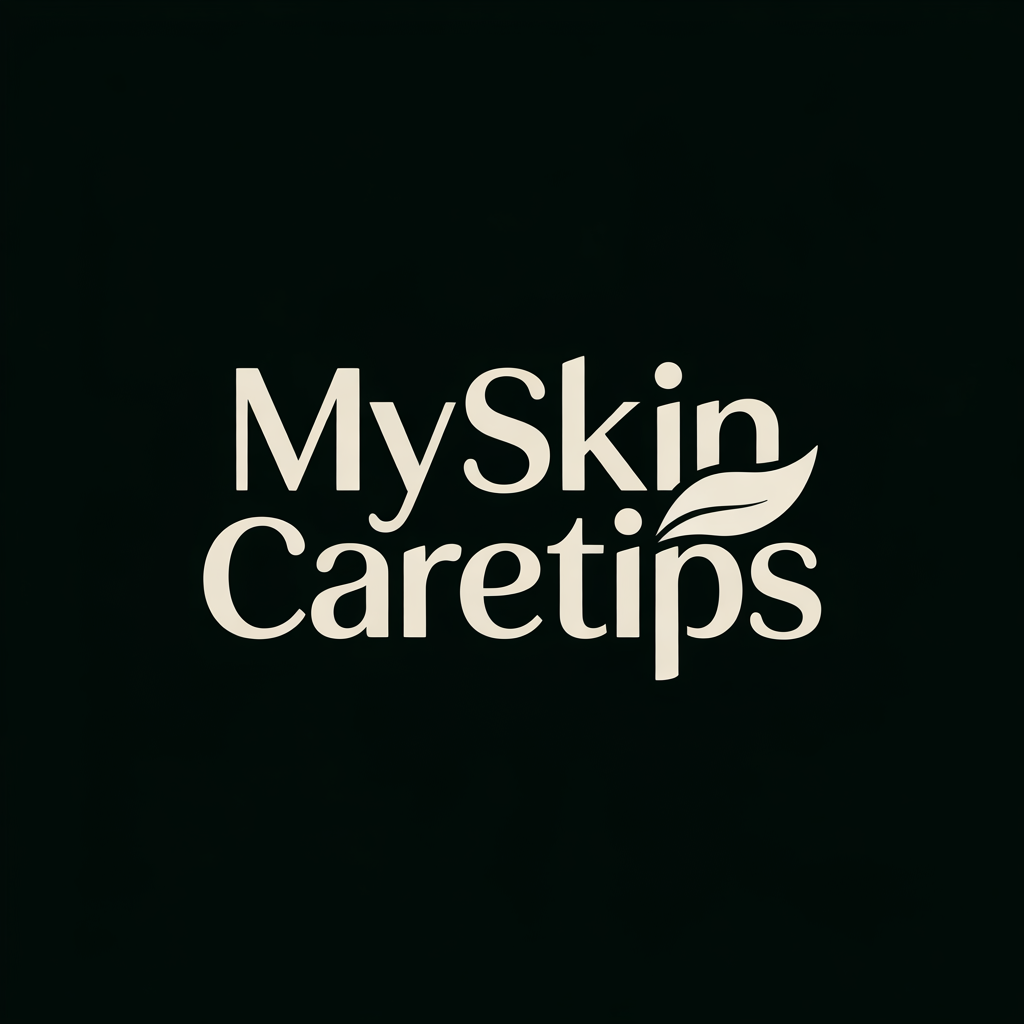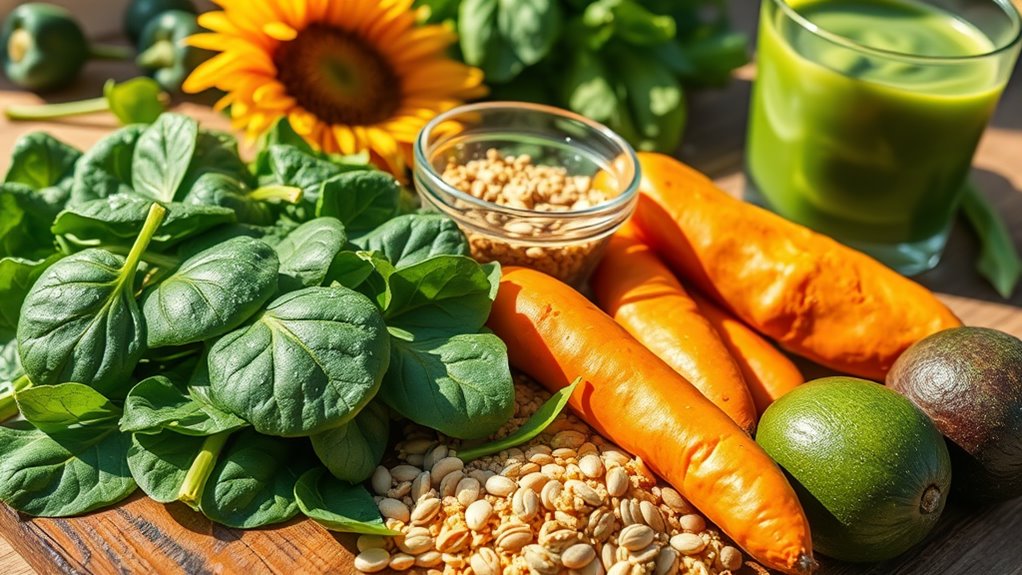The Diet Changes That Boosted My Hair Strength
To boost your hair strength, incorporate essential proteins, vitamins, and healthy fats into your diet. Eat protein-rich foods like eggs and lean meats for keratin production. Include vibrant fruits and vegetables for vitamins A, C, and E, which promote growth and resilience. Don’t forget omega-3 fatty acids from salmon or avocados to nourish your scalp. Staying hydrated is also vital for transporting nutrients. Avoid processed and sugary foods that can weaken hair. There’s more to learn about transforming your hair health.
Understanding Hair Structure and Nutrition
How much do you really know about the relationship between hair structure and nutrition?
Your hair’s health greatly depends on what you eat.
A balanced diet for hair strength includes essential vitamins and minerals.
For instance, vitamin A promotes sebum production, while vitamins C and E protect hair from oxidative stress.
Iron enhances blood circulation to the scalp, ensuring your hair follicles receive essential nutrients.
Omega-3 fatty acids found in fish promote scalp health.
By understanding the connection between your diet and hair structure, you can make informed choices that support stronger, healthier hair.
Incorporating essential nutrients into your meals can be a powerful ally in this journey.
The Role of Protein in Hair Strength
Protein is a fundamental building block of hair, playing an essential role in its strength and overall health. Your hair is primarily made of keratin, a type of protein.
When you consume adequate protein, you supply your body with the necessary amino acids to produce keratin, which helps prevent breakage and promotes growth. Insufficient protein intake can lead to weak, brittle hair that’s prone to damage.
Aim for a balanced diet rich in high-quality protein sources like lean meats, eggs, dairy, beans, and nuts. Additionally, incorporating nutritional guidelines that support overall hair health can further enhance your results.
Essential Vitamins for Healthy Hair
To maintain healthy hair, it’s vital to understand the essential vitamins that support growth and strength.
You’ll find that certain vitamins play key roles in hair health, and knowing their food sources can help you incorporate them into your diet. Additionally, while whole foods are ideal, supplementation may be necessary for some individuals to meet their needs. Incorporating kitchen ingredients into your diet can also enhance your hair’s vitality through natural sources of these essential vitamins.
Key Vitamins Explained
Essential vitamins play a key role in maintaining and enhancing hair strength.
Vitamin A supports cell growth and contributes to sebum production, keeping your scalp healthy.
B vitamins, particularly biotin, are essential for hair growth and strength, as they help produce red blood cells that carry oxygen to the scalp.
Vitamin C acts as an antioxidant, protecting hair from damage and aiding collagen production, essential for hair structure.
Finally, vitamin E promotes blood circulation in the scalp, encouraging hair growth.
Incorporating these key vitamins into your diet can greatly improve your hair’s health and resilience.
Food Sources Overview
Incorporating a variety of food sources into your diet can greatly enhance your hair’s health by providing essential vitamins.
For instance, leafy greens like spinach and kale are rich in vitamin A, promoting healthy sebum production. Citrus fruits, such as oranges and lemons, deliver vitamin C, which aids in collagen synthesis. Nuts and seeds serve up vitamin E, known for improving blood circulation to the scalp. Additionally, fish like salmon and avocados contribute omega-3 fatty acids, essential for maintaining moisture.
Supplementation Considerations
While a well-rounded diet is essential for hair health, supplementation can fill nutritional gaps and support your hair’s strength and vigor.
Key vitamins like biotin, vitamin D, and vitamin E play vital roles in hair growth and maintenance.
Biotin enhances keratin production, promoting stronger strands.
Vitamin D may help create new hair follicles, while vitamin E’s antioxidant properties protect hair from oxidative stress.
Iron and omega-3 fatty acids also contribute to overall hair health.
Before starting any supplements, consult a healthcare professional to make sure they’re suitable for your individual needs and to avoid potential interactions with other medications.
Incorporating Healthy Fats Into My Diet
Incorporating healthy fats into your diet is essential for strong, vibrant hair.
Foods rich in omega-3 fatty acids, like fatty fish, as well as avocados and nuts, can nourish your hair follicles and promote growth.
Omega-3 Fatty Acids
Omega-3 fatty acids are essential for maintaining not just overall health but also vibrant, strong hair.
These healthy fats help nourish hair follicles, promote growth, and reduce inflammation that can lead to hair loss.
Incorporating sources like fatty fish—such as salmon and mackerel—along with flaxseeds and chia seeds into your diet can greatly boost your omega-3 intake.
Aim for at least two servings of fatty fish per week or consider a high-quality fish oil supplement if you’re plant-based.
Avocado and Nuts
Healthy fats play an essential role in promoting strong, resilient hair, and incorporating avocados and nuts into your diet is an excellent way to achieve this. Avocados are rich in vitamins E and B, which enhance hair health, while nuts provide essential fatty acids and minerals. Including these foods can help improve scalp health and reduce hair breakage.
| Food | Benefits |
|---|---|
| Avocado | Rich in vitamins E and B |
| Almonds | High in magnesium and vitamin E |
| Walnuts | Source of omega-3 fatty acids |
| Pecans | Contains zinc for hair growth |
| Cashews | Packed with protein and copper |
Add them to your meals for better hair strength!
The Impact of Hydration on Hair Health
How often do you consider the role hydration plays in maintaining vibrant, strong hair?
Staying hydrated is essential for ideal hair health.
Water helps transport essential nutrients to hair follicles, promoting growth and reducing brittleness.
When you’re dehydrated, your hair can become dry and prone to breakage.
Studies show that adequate hydration improves scalp health, reducing dandruff and irritation.
Aim for at least eight glasses of water daily, and consider incorporating hydrating foods like cucumbers and watermelon into your diet.
Foods to Avoid for Stronger Hair
While it might be tempting to indulge in certain foods, avoiding specific items can greatly enhance your hair’s strength and health.
Certain dietary choices can lead to weaker, brittle hair, so steer clear of:
- Sugary snacks – Excess sugar can lead to inflammation, affecting hair follicles.
- Refined carbs – White bread and pastries can spike blood sugar, hindering nutrient absorption.
- Trans fats – Found in processed foods, they can impair circulation and nutrient delivery to hair.
- Excessive alcohol – It dehydrates the body and can disrupt nutrient absorption, impacting hair health.
Incorporating more kitchen staples into your diet can also provide essential nutrients that support stronger hair.
Making these adjustments can lead to noticeable improvements.
The Benefits of Supplements for Hair Growth
Supplements can play an essential role in enhancing hair growth, especially when dietary intake falls short.
Key nutrients like biotin, vitamin D, and zinc support keratin production, which strengthens hair strands.
Omega-3 fatty acids can improve scalp health, while iron helps prevent hair loss by promoting circulation.
Studies show that deficiencies in these nutrients can lead to thinning hair and slow growth.
Taking a high-quality multivitamin or specific hair growth supplements may fill these gaps, providing your hair with the essential building blocks it needs.
Always consult a healthcare professional before starting any new supplement regimen for best results.
Real-Life Results: My Hair Transformation Journey
Wondering what a dedicated hair transformation journey looks like? Here’s a snapshot of my experience:
- Initial Assessment: I started by evaluating my hair’s health, noting dryness and breakage.
- Diet Overhaul: I incorporated nutrient-rich foods, focusing on proteins, vitamins, and healthy fats.
- Routine Changes: I adopted a consistent hair care routine, including gentle washing and regular trims.
- Progress Monitoring: Every month, I documented changes in thickness, shine, and overall resilience.
These steps not only improved my hair’s strength but also boosted my confidence. Interestingly, just like with skin, dietary choices can significantly influence hair health, helping to nourish it from within. Your journey could yield similar results with commitment and the right dietary choices!

